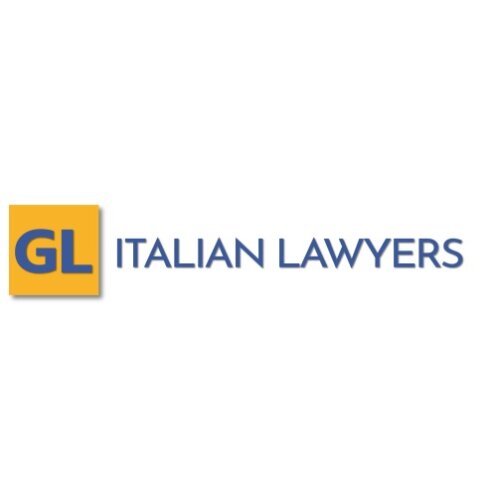Best Permanent Residency Lawyers in Italy
Share your needs with us, get contacted by law firms.
Free. Takes 2 min.
Or refine your search by selecting a city:
List of the best lawyers in Italy
About Permanent Residency Law in Italy
Italy is a popular destination for many looking to reside permanently, thanks to its rich cultural heritage, history, and vibrant lifestyle. Permanent residency in Italy allows non-EU citizens the right to live indefinitely in Italy, gaining access to many of the benefits enjoyed by citizens. To qualify, individuals typically need to have resided legally in Italy for at least five years and meet specific income and accommodation requirements. The residency permit, known as the "Permesso di Soggiorno UE per soggiornanti di lungo periodo," provides the holder with similar rights to Italian citizens in terms of work and social benefits, but not the right to vote in national elections.
Why You May Need a Lawyer
Seeking legal advice while applying for permanent residency in Italy can be crucial in several situations. A lawyer can help ensure that your application is correctly filled out and submitted, minimizing errors that could lead to delays or rejections. Legal support is particularly beneficial if you have a complex case, such as lacking some required documentation or past legal issues. Additionally, laws and requirements can change, and a lawyer can provide up-to-date advice. For individuals who do not speak Italian fluently, a lawyer can help navigate communication with government bodies.
Local Laws Overview
Understanding the local laws concerning permanent residency is essential for a successful application. Applicants must ensure they have legally resided in Italy for at least five years consecutively, holding a valid residence permit throughout this period. It's important to demonstrate a stable income, either through employment or self-employment, and meet housing standards. Additionally, knowledge of the Italian language at a basic level (A2 level) is often required. Italy is part of the EU, and thus, regulations might differ significantly for EU versus non-EU citizens.
Frequently Asked Questions
What is the primary requirement for applying for permanent residency?
The primary requirement is having a continuous legal residence in Italy for five years with a valid residency permit.
How much income do I need to show?
The required income varies, but generally, it should at least meet the annual social allowance, which is reviewed periodically.
Do I need to pass a language test?
Yes, proving a basic understanding of the Italian language, usually at an A2 level, is often required.
Can family members be included in my application?
Yes, family members such as spouses and minor children can be included, but you will need to prove higher income and adequate housing to support all applicants.
Are there any exceptions to the five-year rule?
Yes, some exceptions may apply, such as for minors or those with refugee status.
Does permanent residency expire?
The permit does not have an expiration date but can be revoked if you leave the EU for more than 12 consecutive months or if you commit significant legal violations.
Can I work freely with a permanent residency permit?
Yes, with a permanent residency permit, you have the same working rights as an Italian citizen.
What happens if my application is rejected?
If your application is rejected, you can appeal the decision. Consulting a lawyer at this stage is highly recommended.
How long does the application process take?
The process can take several months, depending on the completeness of your application and the workload of the immigration office.
Can permanent residency lead to citizenship?
Yes, having permanent residency is often a step towards applying for Italian citizenship, which can usually be applied for after 10 years of residence.
Additional Resources
For further assistance and detailed guidelines, the following resources may be helpful:
- The official website of the Italian Ministry of the Interior (Ministero dell'Interno).
- Your local Questura (police headquarters), which handles residency permits.
- Organizations like the Patronato, which provide free assistance on immigration matters.
- The European Commission’s resources on immigration.
Next Steps
If you require legal assistance with your permanent residency application, start by consulting with an immigration lawyer who specializes in Italian law. You can reach out to legal associations, such as the Consiglio Nazionale Forense, to find a qualified lawyer. Prepare all necessary documentation, and ensure you understand your rights and obligations under Italian law. Always remember that proper legal guidance can significantly increase your chances of a successful application process.
Lawzana helps you find the best lawyers and law firms in Italy through a curated and pre-screened list of qualified legal professionals. Our platform offers rankings and detailed profiles of attorneys and law firms, allowing you to compare based on practice areas, including Permanent Residency, experience, and client feedback.
Each profile includes a description of the firm's areas of practice, client reviews, team members and partners, year of establishment, spoken languages, office locations, contact information, social media presence, and any published articles or resources. Most firms on our platform speak English and are experienced in both local and international legal matters.
Get a quote from top-rated law firms in Italy — quickly, securely, and without unnecessary hassle.
Disclaimer:
The information provided on this page is for general informational purposes only and does not constitute legal advice. While we strive to ensure the accuracy and relevance of the content, legal information may change over time, and interpretations of the law can vary. You should always consult with a qualified legal professional for advice specific to your situation.
We disclaim all liability for actions taken or not taken based on the content of this page. If you believe any information is incorrect or outdated, please contact us, and we will review and update it where appropriate.
Browse permanent residency law firms by city in Italy
Refine your search by selecting a city.















